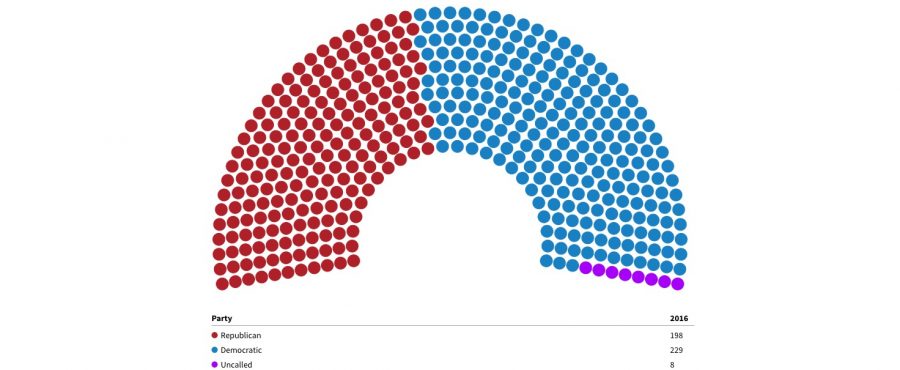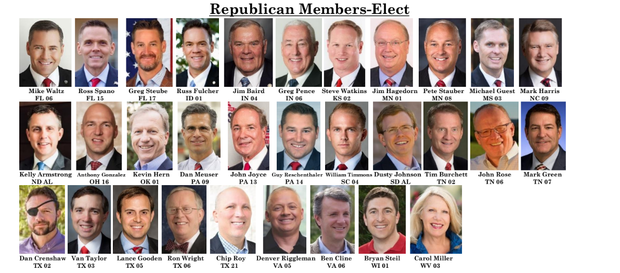Table Of Content

Each state is entitled to at least one representative, however small its population. The House began work on April 1, 1789, when it achieved a quorum for the first time. House were held on November 3, 2020, and coincide with the 2020 presidential election. The passed bills will be combined into a single package to simplify the voting process for the Senate, which will need to reapprove the proposal before it can go to President Joe Biden’s desk for his signature. Saturday's vote marked the first time the House had approved billions of dollars in Ukraine aid since December 2022, when Democrats still controlled the chamber.
Officers
A convicted official is automatically removed from office and may be disqualified from holding future office under the United States. No further punishment is permitted during the impeachment proceedings; however, the party may face criminal penalties in a normal court of law. Representatives are usually identified in the media and other sources by party and state, and sometimes by congressional district, or a major city or community within their district. For example, Democratic representative Nancy Pelosi, who represents California's 11th congressional district within San Francisco, may be identified as "D–California", "D–California–11" or "D–San Francisco". Representatives and delegates serve for two-year terms, while a resident commissioner (a kind of delegate) serves for four years.
Personnel, mail and office expenses
Unlike the Senate, the House of Representatives is not sectioned off so that only certain members are up for re-election each year. Instead, representatives face re-election every two years, meaning in 2024 all 435 seats will be up for election. In the 118th Congress which runs through Jan. 3, 2025, Republicans have majority control of the House of Representatives.
Age and Sex of Senators
"Our process, in the end, ensured that each member was able to consider the individual supplemental elements on their own merits, which is exactly how the House is supposed to work," Johnson said after the vote on Saturday afternoon. "I know there are critics of the legislation. I understand that — it is not a perfect piece of legislation. We're not ensured that in a time of divided government." Speaker of the House Mike Johnson speaks to the press after the chamber passed a major aid package for Ukraine, Israel, and Taiwan on April 20. Rep. Julia Letlow, R-La., who was reelected this fall, became the most recent widow to serve out her husband’s term in the House.
All southern senators except Andrew Johnson resigned their seats at the beginning of the war, and therefore the Senate did not hold the balance of power between North and South during the war. During the first half of the 19th century, the House was frequently in conflict with the Senate over regionally divisive issues, including slavery. The North was much more populous than the South, and therefore dominated the House of Representatives. However, the North held no such advantage in the Senate, where the equal representation of states prevailed. Simply getting the bills to a vote on the foor required Johnson to seek help from Democrats across the aisle. A procedural vote to get it to the floor was , with 165 Democrats and 151 Republicans supporting the motion.
In GOP Contest, Trump Supporters Stand Out for Dislike of Compromise
Also referred to as a congressman or congresswoman, each representative is elected to a two-year term serving the people of a specific congressional district. The number of voting representatives in the House is fixed by law at no more than 435, proportionally representing the population of the 50 states. Currently, there are five delegates representing the District of Columbia, the Virgin Islands, Guam, American Samoa, and the Commonwealth of the Northern Mariana Islands. Elections for representatives are held in every even-numbered year, on Election Day the first Tuesday after the first Monday in November. Pursuant to the Uniform Congressional District Act, representatives must be elected from single-member districts. After a census is taken (in a year ending in 0), the year ending in 2 is the first year in which elections for U.S.

Rep. Mike Johnson, the newly-elected Speaker of the House, is also a Louisiana Republican. Santos' expulsion left a vacancy, which was filled in a special election that Democrat Tom Suozzi won, narrowing the Republicans' majority even more. Speaking from the Capitol earlier this week, Johnson said providing aid to Ukraine was “critically important” and “the right thing” despite the potential power of his opponents to bring him down in yet another internal party coup.
The number of seats in the House has not been increased in more than a century, though, even though every 10 years the census shows the population of the United States grows. California, the nation's most populous state has 52 representatives. Wyoming, which has the smallest population has only one representative. Other states with just one representative include Alaska, North Dakota, South Dakota, Vermont, and Delaware.
Member officials
In some committees like Appropriations, partisan disputes are few. In most states, major party candidates for each district are nominated in partisan primary elections, typically held in spring to late summer. Exceptions can result in so-called floor fights—convention votes by delegates, with outcomes that can be hard to predict. Especially if a convention is closely divided, a losing candidate may contend further by meeting the conditions for a primary election. The courts generally do not consider ballot access rules for independent and third party candidates to be additional qualifications for holding office and no federal statutes regulate ballot access. As a result, the process to gain ballot access varies greatly from state to state, and in the case of a third party in the United States may be affected by results of previous years' elections.
The House meets in the south wing of the United States Capitol. The rules of the House generally address a two-party system, with a majority party in government, and a minority party in opposition. The presiding officer is the Speaker of the House, who is elected by the members thereof. Other floor leaders are chosen by the Democratic Caucus or the Republican Conference, depending on whichever party has more voting members. The House of Representatives has voted to pass a $95 billion foreign aid package that includes funding to Ukraine, Israel and Taiwan.
Each state gets a different number of representatives based on the total population. California is the nation’s most populous state and has 52 representatives. There are 212 Democrats officially in the House of Representatives. But that number will be 213 once Tom Suozzi is sworn in after winning the special election in New York to replace Republican George Santos. The Republican House majority leader is Louisiana Rep. Steve Scalise.
Who Will Win Control of the House in 2024? California May Hold the Key. - The New York Times
Who Will Win Control of the House in 2024? California May Hold the Key..
Posted: Wed, 06 Mar 2024 08:00:00 GMT [source]
The group ThirtyThousand.org argues that the framers of the Constitution and the Bill of Rights never intended for the population of each congressional district to exceed 50,000 or 60,000. "The principle of proportionally equitable representation has been abandoned," the group argues. In the instance when the presidency and both Houses of Congress are controlled by one party, the speaker normally takes a low profile and defers to the president. For that situation the House minority leader can play the role of a de facto "leader of the opposition", often more so than the Senate minority leader, due to the more partisan nature of the House and the greater role of leadership. When the presidency and Senate are controlled by a different party from the one controlling the House, the speaker can become the de facto "leader of the opposition". Some notable examples include Tip O'Neill in the 1980s, Newt Gingrich in the 1990s, John Boehner in the early 2010s, and Nancy Pelosi in the late 2000s and again in the late 2010s and early 2020s.
The House of Representatives on Saturday passed a more than $60 billion bill to provide military and economic aid to Ukraine. Ahead of the vote, Rep. Michael McCaul, who chairs the Foreign Affairs Committee, said, "History will judge us by our actions here today." The House-passed bills are similar to a $95 billion package that passed the Senate in February but then stalled in the House. The package contains a fourth bill aimed at implementing sanctions and policies to counter China, Iran and Russia.
[T]he constitutional prerogative of the House has been held to apply to all the general appropriations bills, and the Senate's right to amend these has been allowed the widest possible scope. Regional conflict was most pronounced over the issue of slavery. One example of a provision repeatedly supported by the House but blocked by the Senate was the Wilmot Proviso, which sought to ban slavery in the land gained during the Mexican–American War. Conflict over slavery and other issues persisted until the Civil War (1861–1865), which began soon after several southern states attempted to secede from the Union. The war culminated in the South's defeat and in the abolition of slavery.

Presently, the District of Columbia and the five inhabited U.S. territories each elect a delegate. A seventh delegate, representing the Cherokee Nation, has been formally proposed but has not yet been seated.[30] An eighth delegate, representing the Choctaw Nation is guaranteed by treaty but has not yet been proposed. Additionally, some territories may choose to also elect shadow representatives, though these are not official members of the House and are separate individuals from their official delegates.
House districts are based on that census (with the Congress based on those districts starting its term on the following January 3). As there is no legislation at the federal level mandating one particular system for elections to the House, systems are set at the state level. As of 2022, first-past-the-post or plurality voting is adopted in 46 states, ranked-choice or instant-runoff voting in two states (Alaska and Maine), and two-round system in two states (Georgia and Mississippi). Elected representatives serve a two-year term, with no term limit. Historically, many territories have sent non-voting delegates to the House. While their role has fluctuated over the years, today they have many of the same privileges as voting members, have a voice in committees, and can introduce bills on the floor, but cannot vote on the ultimate passage of bills.

No comments:
Post a Comment